
We all grew up to the notion that anything associated with the negative is bad. Even Mathematics views negative as a shortcoming or a problem of sorts. While it can be true, there are also occasions where negatives can bring about positive outcomes.
Let’s take negative reviews, for instance. With the rise of technology, everything becomes as easy as 1-2-3, as life depended on one’s fingertips. People relied on reviews; businesses thrive and survive because of reviews. “90% of consumers read online reviews before visiting a business, while 88% of them trust online reviews as much as personal recommendations.”1 Guest sees reviews as their lifeline. Reviews aid in their decision-making. Previous guests can influence potential guests through reviews.
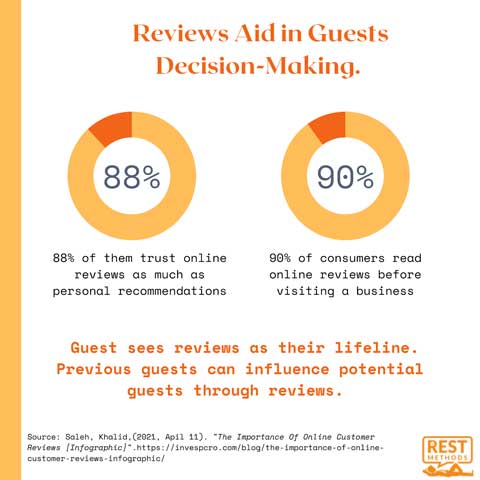
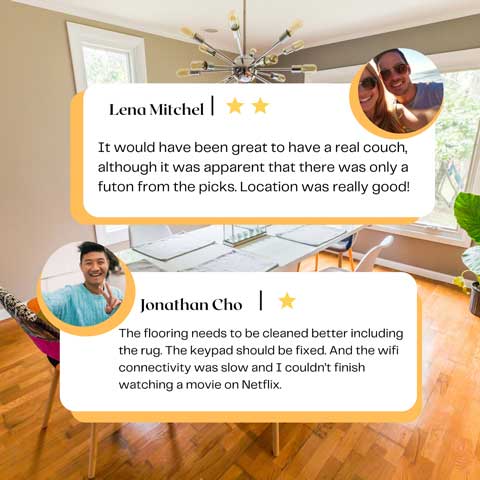
A mere write-up is compelling that it can damage one’s reputation, and sadly, most if not everyone believes in reviews. It is very disheartening to receive something negative. It can dampen any spirit like you have done nothing but inefficiency. What makes it worse is that you have exerted all efforts and hard work to make your short-term rental the best in terms of aesthetics, function, and comfort.
Negative reviews are business dynamics that even business owners cannot control. People will never run out of negative things to say. People can always come up with excuses. Sometimes, even the pettiest of things become severely affecting. In scenarios like this, you are left with two choices. You can either face your “adversaries” or ignore them. Note, though, that whichever path you decide to take, there are repercussions to them.
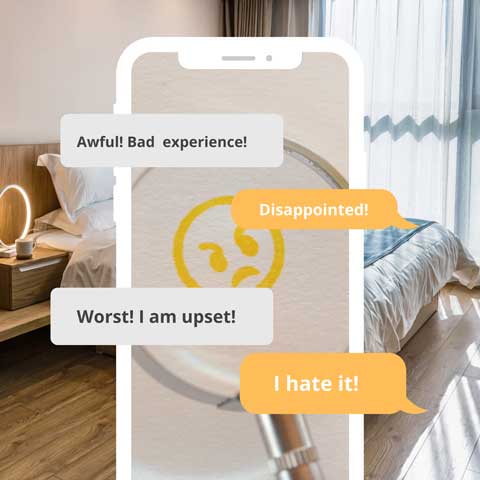

If you face the fact, you allow yourself room to improve, and that is the very same ideal that you will impart on your short-term rental. You will take close monitoring of the complaints and will work on creating a strategic plan on how this predicament won’t happen again. If there’s a need for you to change the layout and the structures of your unit, you most likely would, right? However, if you choose otherwise, you have to be prepared to receive more of these reviews. It is highly suggested that negative feedback be addressed appropriately and promptly to avoid getting it out of hand.
Too often, the magnitude becomes out of proportion because business owners ignore negative reviews. They settle on the resolve that reviews are nothing but a mere collection of words spoken out of necessity. They discount the truth about people being entitled to their own opinion. While it does hurt, as a short-term rental owner, you should acknowledge their frustrations and disappointments. You have to start seeing reviews from a different perspective. Encourage your guests to speak their minds. After every stay, you ask them about their experiences; if you can obtain their emotions offline, the better.

As a short-term rental owner, whether you have people managing your business or not, you have to be keen on reviews. Nowadays, there are various platforms where people can lodge their reviews. Listing sites have spaces for reviews. These allow your guests to leave comments and suggestions. You have to be aware of these sites for you to be able to respond promptly.

Guests may complain about random things that sometimes do not matter to others. You don’t necessarily have to agree with them. Just let them know that you appreciate them and their feedback.
Don’t expect to receive positive reviews at all times. You might read the most irrelevant point of view, but still, you have to accept them just the same.
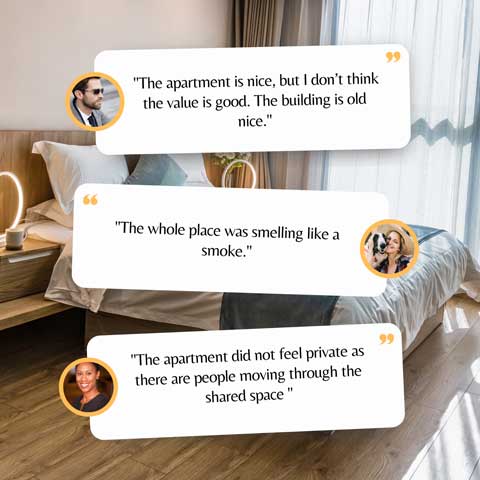

The soonest you see a review, do not delay. This strategy assures your guests that you respect their time as much as you value their thoughts.
How you handle difficult situations speaks so much about your personality. Regardless of how callous or offensive the review is, be polite. Keep in mind how respect begets respect.

Doing so makes your guests feel that you care, that you value their insights. It can build trust between you and your guests. Unbeknownst to many, some guests give second chances despite a previous not-so-pleasant experience because the owner acknowledged them. Most of them do not aspire for anything more than their aim to be heard and be listened to.
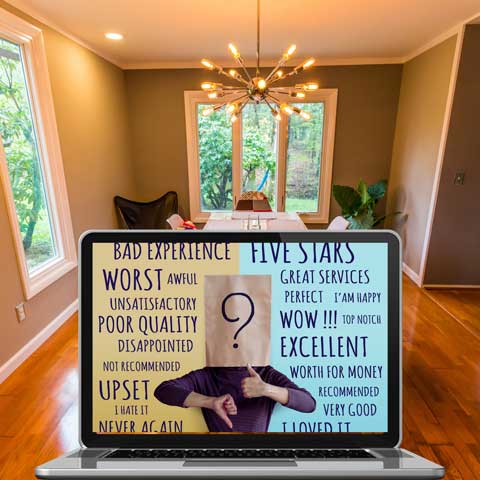
This may be a cliché, but a simple “ I understand your frustrations” or “ My apology for not being able to meet your expectations” matter. Guests, albeit with their disappointments, appreciate honesty and humility. On top of the usual apology, inform them of your action plans. Let them know that you understand them and their feedback. Be concrete and tell them that you will look into their concern or keep them in the loop if you’ve made changes already. Who knows, they might be curious and change their minds.
